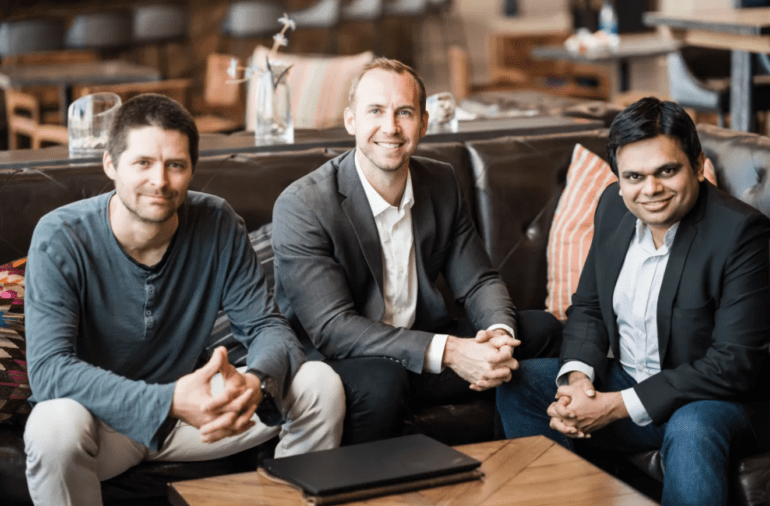TL;DR:
- Aionics, a startup founded in 2020, is harnessing AI to accelerate innovation in electric vehicle (EV) battery technology.
- The company focuses on optimizing the critical electrolyte component of lithium-ion batteries.
- Aionics utilizes AI-driven quantum mechanics to analyze billions of molecules, evaluating up to 10,000 candidates per second.
- Generative AI models are employed to design entirely new molecules tailored to specific battery applications.
- Collaboration with industry leaders like Porsche’s Cellforce and Form Energy highlights Aionics’ significant impact.
- Large language models (LLMs) based on GPT-4 from OpenAI assist scientists in rapidly filtering through potential formulations.
- Aionics’ chatbot tool, trained on chemistry textbooks and scientific papers, empowers scientists to eliminate unsuitable molecules efficiently.
- The validation process involves sending customer samples for testing, with iterations and clinical trials if necessary.
- Aionics extends its innovation to unconventional areas like cement production through partnerships with startups like Chement.
Main AI News:
Ten billion. That’s the staggering number of commercially available molecules at our disposal today. When examined in sets of five, the typical combination for crafting electrolyte materials in batteries, this number explodes into an astonishing 10 to the 47th power. For those immersed in the world of batteries, this multitude of possibilities presents both an opportunity and a challenge.
Every permutation of these molecules holds the potential to revolutionize battery technology, paving the way for faster charging and higher energy density batteries that can power electric vehicles, the grid, or even electric airplanes. However, akin to the labyrinthine journey of drug discovery, pinpointing the ideal configuration can be a decade-long odyssey riddled with thousands of failed attempts.
Enter startup Aionics, founded by CEO Austin Sendek and his team, who firmly believe that artificial intelligence (AI) holds the key to expedited innovation in this arena. “The problem is there’s too many candidates and not enough time,” Sendek explained during the recent Up Summit event in Dallas. Aionics is laser-focused on the pivotal element within lithium-ion batteries—the electrolyte—and is leveraging an AI toolkit to usher in a new era of breakthrough batteries.
This Palo Alto-based startup, born in 2020, has garnered considerable attention, securing $3.5 million in funding to date, including a substantial $3.2 million seed round featuring prominent investors such as UP.Partners. Aionics’ innovative approach has led to fruitful collaborations with industry giants, including Porsche’s battery subsidiary, Cellforce, energy storage specialist Form Energy, Japanese materials powerhouse Showa Denko (now Resonac), and battery technology innovator Cuberg.
Aionics’ process commences with a client’s battery performance specifications, serving as the guiding star. Employing AI-driven quantum mechanics, the company’s scientists can analyze an extensive database of billions of known molecules, evaluating a staggering 10,000 candidates every second. With each iteration, the AI model gains the ability to predict the outcome of the next simulation, progressively improving its problem-solving capabilities.
But Aionics has taken a remarkable stride by incorporating generative AI into the equation. Instead of relying solely on established molecules, the company now employs generative AI models, trained on existing battery materials data, to design entirely new molecules tailored to specific applications.
A pivotal part of Aionics’ strategy involves deploying software developed within the Accelerated Computational Electrochemical Systems Discovery program at Carnegie Mellon University, co-founded and led by Venkat Viswanathan, now Aionics’ chief scientist. Furthermore, the integration of large language models based on GPT-4 from OpenAI has enabled Aionics’ scientists to sift through millions of potential formulations with remarkable efficiency. This chatbot tool, enriched with knowledge from chemistry textbooks and scientific papers curated by Aionics, doesn’t replace scientists but empowers them to eliminate unsuitable molecules swiftly.
As Sendek aptly put it, “If you can talk to your textbook, what would you ask it?” The chatbot provides an advanced level of interaction while maintaining verifiability through its rooted connection to the sources used for training.
Once the vast pool of candidates has been narrowed down, or even designed from scratch using the generative AI model, Aionics proceeds to validate the selections by sending customer samples for testing. Should the first round not yield the desired results, iterative improvements and clinical trials follow until the winning formulation emerges. Finally, Aionics collaborates with manufacturing partners to scale production and bring the breakthrough to market.
Intriguingly, this process extends its reach into novel domains like cement. Chement, another startup co-founded by Viswanathan in partnership with Aionics, explores the use of renewable electricity and raw materials to drive chemical reactions, yielding zero-emissions products, such as cement. The boundaries of innovation continue to expand, driven by the fusion of AI and human expertise.
Conclusion:
Aionics’ integration of AI into the battery development process promises to revolutionize the EV market and beyond. By significantly accelerating the discovery of optimal electrolyte materials and formulation designs, Aionics stands to play a pivotal role in advancing battery technology, ultimately driving the electrification of various industries, from automotive to energy storage. This strategic use of AI positions Aionics as a leading player in shaping the future of sustainable energy solutions.

